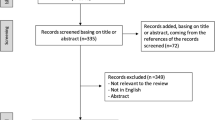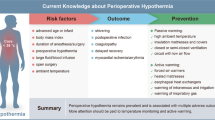Summary
Anaesthetized male rats (n=86) from both Long-Evans strain (LES) (n=43) and Wistar strain (WS) (n=43) were utilized for the experiments. While three animals from each strain were used as control, 40 rats from each strain underwent up to 10 minutes forebrain ischaemia by bilateral common carotid artery (CCA) occlusion combined with systemic hypotension [Mean Arterial Blood Pressure (MABP)=50 mm/Hg]. The animals from each strain were divided into four (n=10) groups. In both strains, groups (n=10) 1 and 2, temporalis muscle (TM) and body temperatures of the animals were kept at 36–37 °C during the experiments. The groups 1 and 2 were killed in 3 and 7 days after the ischaemic insult, respectively. The groups 3 and 4 were also killed 3 and 7 days after the ischaemic insult, but the forebrain ischaemia was carried out under mild cerebral hypothermia (TM temperature = 33 °C). Pyramidal neurons of the hippocampal CA1 region from each group was evaluated semiquantitatively. In WS, groups 1 and 2 showed moderate and severe neuronal loss in the CA1 region, respectively. However, in LES while the group 1 (3 days survival) did not show any neuronal loss, group 2 showed moderate neuronal loss of the CA1 region. While in group 3 (3 days survival, hypothermia) WS and LES, hypothermia protected the CA1 region, group 4 of LES showed mild neuronal loss. However WS, group 4 (7 days survival, hypothermia) showed severe neuronal loss of the CA1 region.
It was concluded that mild hypothermia during ischaemic insults did not prevent the delayed postischaemic neuronal damage of the hippocampal CA1 region of both strains, and following 10 minutes forebrain ischaemia, male LES rats were found more resistant than male WS rats to neuronal loss of the CA1 region.
Similar content being viewed by others
References
Baker AJ, Zornow MH, Grafe MR, Scheller MS, Skilling SR, Smullin DH, Larson AA (1991) Hypothermia prevents ischemia-induced increases in hippocampal glycine concentrations in rabbits. Stroke 22: 666–673
Baldwin WA, Kirsch JR, Hurd PD, Toung WSP, Traystman RJ (1991) Hypothermic cerebral perfusion and recovery form ischemia. Am J Physiol 30: H774-H781
Berntman L, Welsh FA, Harp JR (1991) Cerebral protective effects of low-grade hypothermia. Anesthesiology 55: 495–498
Blomqvist P, Mabe H, Ingvar M, Siesjo BK (1984) Models for studying long-term recovery following forebrain ischemia in the rat. 1. Circulatory and functional effects of 4-vessel occlusion. Acta Neurol Scand 69: 376–384
Busto R, Dietrich WD, Globus MY-T, Valdes I, Scheinberg P, Ginsberg MD (1987) Small differences in intraischemic brain temperature critically determine the extent of ischemic neuronal injury. J Cereb Blood Flow Metab 7: 729–738
Busto R, Globus MY-T, Martinez E, Valdes I, Ginsberg MD (1989) Effect of mild hypothermia and ischemia-induced release of neurotransmitters and free fatty acids in rat brain. Stroke 20: 904–910
Churn SB, Sobati S, Taft WC, DeLorenzo RJ (1993) Excitotoxicity affects membrane potential and calmoduline kinase II activity in cultured rat cortical neurons. Stroke 24: 271–278
Coimbra C, Wielosch T (1994) Moderate hypothermia mitigates neuronal damage in the rat brain when initiated several hours following transient cerebral ischemia. Acta Neuropathol 87: 325–331
Coyle P, Odenheimer DJ, Sing CF (1984) Cerebral infarction after middle cerebral artery occlusion in progenies of spontaneously Stroke-Prone and normal rats. Stroke 15: 711–716
Dempsey RJ, Combs DJ, Maley ME, Cowan DE, Roy MW, Donaldson DL (1987) Moderate hypothermia reduces postischemic edema development and leukotriene production. Neurosurgery 21: 177–181
Dietrich WD, Busto R, Halley M, Valdes I (1990) The importance of brain temperature in alteration of the blood-brain-barrier following cerebral ischemia. J Neuropath Exp Neurol 49: 589–596
Dietrich WD, Busto R, Alonso O, Globus MY-T, Ginsberg MD (1993) Intraischemic but not postischemic brain hypothermia protects chronically following global forebrain ischemia in rats. J Cereb Blood Flow Metab 13: 541–549
Dietrich WD, Alonso O, Busto R, Globus MY-T, Ginsberg MD (1994) Post-traumatic brain hypothermia reduces histopathological damage following concussive brain injury in the rat. Acta Neuropathol 87: 250–258
Duverger D, MacKenzie ET (1988) The quantification of cerebral infarction following focal ischemia in the rat: influence of strain, arterial pressure, blood glucose concentration, and age. J Cereb Blood Flow Metab 8: 449–446
Gehrmann J, Bonnekoh P, Miyazawa T, Hossmann K-A, Kreutzberg GW (1992) Immunohistochemical study of an early microglial activation in ischemia. J Cereb Blood Flow Metab 12: 257–269
Ginsberg MD, Busto R (1989) Rodent models of cerebral ischemia. Stroke 20: 1627–1642
Ginsberg MD, Globus MY-T, Dietrich WD, Busto R (1993) Temperature modulation of ischemic brain injury — a synthesis of recent advances. Prog Brain Res 96: 13–22
Ginsberg MD, Sternau LL, Globus MY-T, Dietrich WD, Busto R (1992) Therapeutic modulation of brain temperature-relevance to ischemic brain injury. Cerebrovasc Brain Met Rev 4: 189–225
Hall ED, Pazara KE, Linseman KL (1991) Sex differences in postischemic neuronal necrosis in gerbils. J Cereb Blood Flow Metab 11: 292–298
Illievich UM, Zornow MH, Choi KT, Strnat MAP, Scheller MS (1994) Effects of hypothermia or anesthetics on hippocampal glutamate and glycine concentrations after repeated transient global cerebral ischemia. Anesthesiology 80: 177–186
Kuluz JW, Prado R, Chang J, Ginsberg MD, Schleien CL, Busto R (1993) Selective brain cooling increases cortical cerebral blood flow in rats. Am J Physiol 34: H824-H827
Kuriowa T, Bonnekoh P, Hossmann K-A (1990) Prevention of postischemic hyperthermia prevents ischemic injury of CA1 neurons in gerbils. J Cereb Blood Flow Metab 10: 550–556
Le Poncin-Lafitte M, Grosdemouge C, Roy-Billon C, Duterte D, Potrat P, Lespinasse P, Papin IR (1981) Short-term memory and cerebral ischemia: pharmacological application. Eur Neurol 20: 265–269
Minamisawa H, Smith M-L, Siesjo BK (1990) The effect of mild hyperthermia and hypothermia on brain damage following 5, 10, and 15 minutes of forebrain ischemia. Ann Neurol 28: 26–33
Morse JK, Davis JN (1990) Regulation of ischemic hippocampal damage in the gerbil: adrenalectomy alters the rate of CA1 cell disappearance. Exp Neurol 110: 86–92
Nakano M, Sugioka K, Naito I, Takekoshi S, Niki E (1987) Novel and potent biological antioxidants on membrane phospholipid peroxidation: 2-hydroxy estrone and 2-hydroxy estradiol. Biochem Biophys Res Commun 142: 919–924
Nakano S, Kogure K, Fujikura H (1990) Ischemia-induced slowly progressive neuronal damage in the rat brain. Neuroscience 38: 115–124
Niki E (1987) Antioxidants in relation to lipid peroxidation. Chem Phys Lipids 44: 227–253
Ogata J, Fujishima M, Morotomi V, Omae T (1976) Cerebral infarction following bilateral carotid artery ligation in normotensive and spontaneously hypertensive rats: a pathological study. Stroke 7: 54–60
Onodera H, Aoki H, Yae T, Kogure K (1990) Postischemic synaptic plasticity in the rat hippocampus after long-term survival: histochemical autoradiographic study. Neuroscience 38: 125–136
Ordy JM, Thomas GJ, Volpe BT, Dunlap WP, Colombo PM (1989) An animal model of human-type memory loss based on aging, lesion, forebrain ischemia and drug studies with the rat. Neurobiol Aging 9: 667–683
Payan HM, Levine S, Strebel R (1965) Effects of cerebral ischemia in various strains of rats. PSEBM 120: 208–209
Pulsinelli WA, Brierley JB (1979) A new model of bilateral hemispheric ischemia in the unanesthetized rat. Stroke 10: 267–272
Pulsinelli WA, Buchan AM (1989) The four-vessel occlusion rat model: method for complete occlusion of vertebral arteries and control of collateral circulation. Stroke 19: 913–914
Ridenour TR, Warner DS, Todd MM, McAllister AC (1992) Mild hypothermia reduces infarct size resulting from temporary but not permanent focal ischemia in rats. Stroke 23: 733–738
Rothman SM, Olney JW (1986) Glutamate and pathophysiology of hypoxic-ischemic brain damage. Ann Neurol 19: 105–111
Sapolsky RM (1985) A mechanism for glucocorticoid toxicity in the hippocampus: increased neuronal vulnerability to metabolic insults. J Neurosci 5: 1228–1232
Smith M-L, Auer RN, Siesjo BK (1984) The density and distribution of ischemic brain injury in the rat following 2–10 min of forebrain ischemia. Acta Neuropathol 64: 319–332
Stupfel M, Perramon A, Merat P, Faure J-M, Pesa VHD, Masse H (1979) Inter- and intraspecies genetic differences in survival to an acute hypoxic challenge in mice, rats, quails and chickens. Comp Biochem Physiol [A] 64: 317–323
Taft WC, Tennes-Rees KA, Blair RE, Clifton GL, DeLorenzo RJ (1988) Cerebral ischemia decreases endogenous calcium-dependent protein phosphorylation in gerbil brain. Brain Res 447: 159–163
Warner DS, Zhou J, Ramani R, Todd MM (1991) Reversible focal ischemia in the rat: effects of halothane, isoflurane, and methohexital anesthesia. J Cereb Blood Flow Metab 11: 794–802
Welsh FA, Sims RE, Harris VA (1990) Mild hypothermia prevents ischemic injury in gerbil hippocampus. J Cereb Blood Flow Metab 10: 557–563
Wiernsperger N, Gygax P (1983) Incomplete cerebral ischemia in the rat: vascular and metabolic changes as measured by infrared transillumination in vivo. Adv Exp Biol Med 159: 5–15
Author information
Authors and Affiliations
Rights and permissions
About this article
Cite this article
Tasdemiroglu, E. Mild hypothermia fails to protect late hippocampal neuronal loss following forebrain cerebral ischaemia in rats. Acta neurochir 138, 570–579 (1996). https://doi.org/10.1007/BF01411178
Issue Date:
DOI: https://doi.org/10.1007/BF01411178




